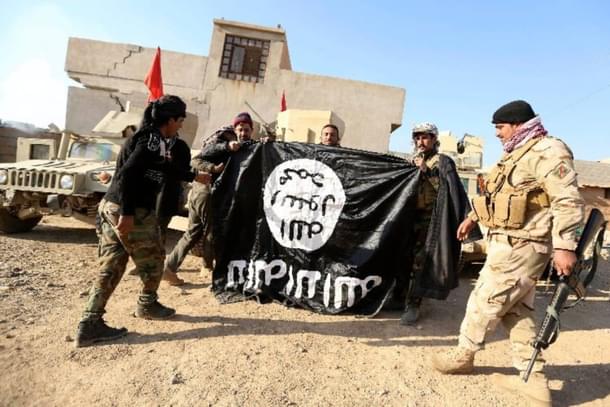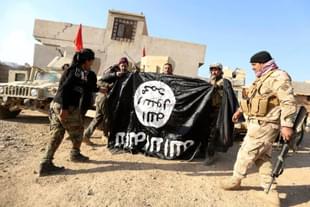News Brief
Islamic State Attempts To Incite Lone-Wolf Attacks In India, Al-Jauhar Media Spreads Propaganda: UN Report
Arjun Brij
Feb 17, 2025, 11:17 AM | Updated 11:17 AM IST
Save & read from anywhere!
Bookmark stories for easy access on any device or the Swarajya app.


A recent United Nations report has highlighted the enduring threat posed by the Islamic State (ISIL/Da’esh), stating that while the group has been unable to execute large-scale attacks in India, its handlers have actively attempted to incite lone-wolf attacks through local supporters, as reported by Indian Express.
The 35th report of the Analytical Support and Sanctions Monitoring Team highlighted the adaptability of ISIL and Al-Qaida, noting that these terror groups remain resilient despite counter-terrorism efforts.
The report states, "ISIL (Da’esh) was unable to mount large-scale attacks in India. However, its handlers tried to incite lone-actor attacks through India-based supporters. The pro-ISIL (Da’esh) Al-Jauhar Media continued to spread anti-India propaganda through its publication Serat ul-Haq."
The findings also point to the security challenges emanating from Afghanistan, where more than two dozen terrorist groups continue to operate.
The UN Secretary-General’s 20th report on ISIL warns that the group's Khorasan Province (ISIL-K) remains a significant threat to regional stability, targeting ethnic minorities, the Taliban regime, the United Nations, and foreign nationals.
"Despite the loss of territory and attrition among senior and mid-tier leadership figures, the presence of terrorist organisations in Afghanistan posed a serious challenge to the stability of the country, as well as to the security of Central Asian and other neighbouring States," the report warns.
UN Secretary-General António Guterres reiterated concerns, stating, "The situation in Afghanistan remains concerning, with ISIL-K continuing to represent a threat not only to the country but also to the region and beyond."
He urged global cooperation, adding, "I continue to call upon all Member States to unite to prevent Afghanistan from again becoming a hotbed of terrorist activities affecting other countries."
Despite Taliban efforts to curb ISIL-K, the group has capitalised on the Taliban’s internal weaknesses, exploiting corruption and infiltration to strengthen its operations.
The report states that ISIL-K remains operationally intact, with Mawlawi Rajab, its deputy, playing a central role in orchestrating high-impact attacks, including suicide bombings.
Beyond Afghanistan, the report highlights ISIL-K's expansion across Central and South Asia, with Tajik nationals making up a significant portion of its recruits.
Routes for new fighters have been identified through Türkiye and Iran, with the group prioritising the movement of militants into Afghanistan.
The UN report also raises concerns over Al-Qaida’s growing ties with regional terrorist groups such as the Tehrik-e-Taliban Pakistan (TTP), Islamic Movement of Uzbekistan, and Jamaat Ansarullah.
It warns that TTP’s increasing collaboration with the Afghan Taliban and Al-Qaida could transform it into a broader regional threat.
Arjun Brij is an Editorial Associate at Swarajya. He tweets at @arjun_brij





